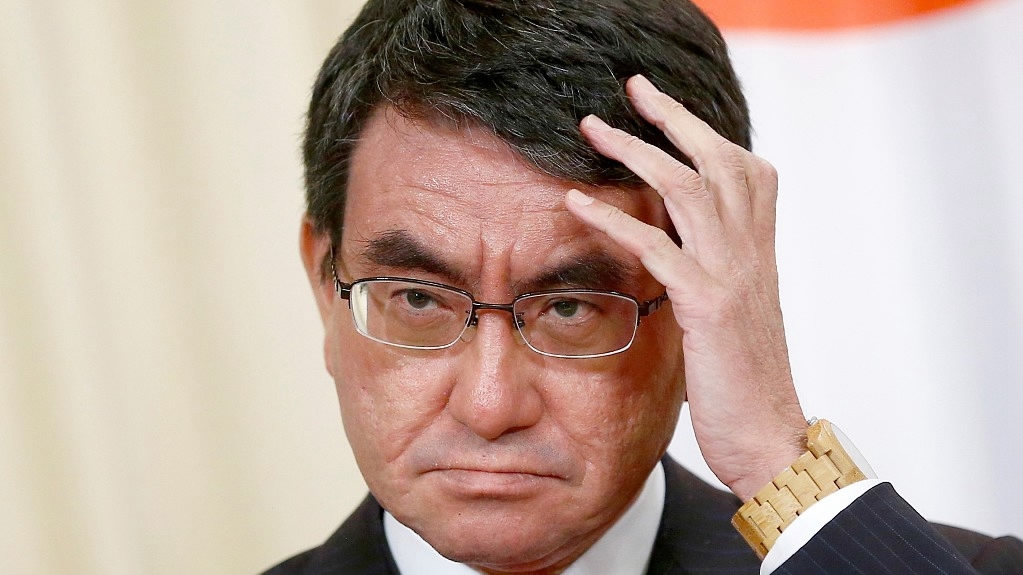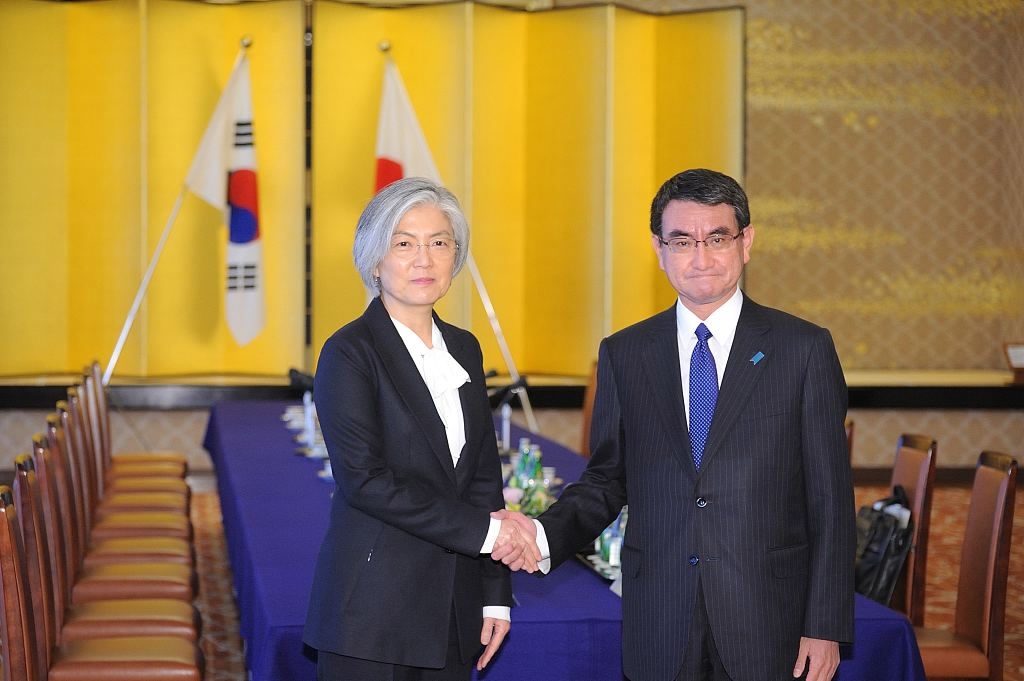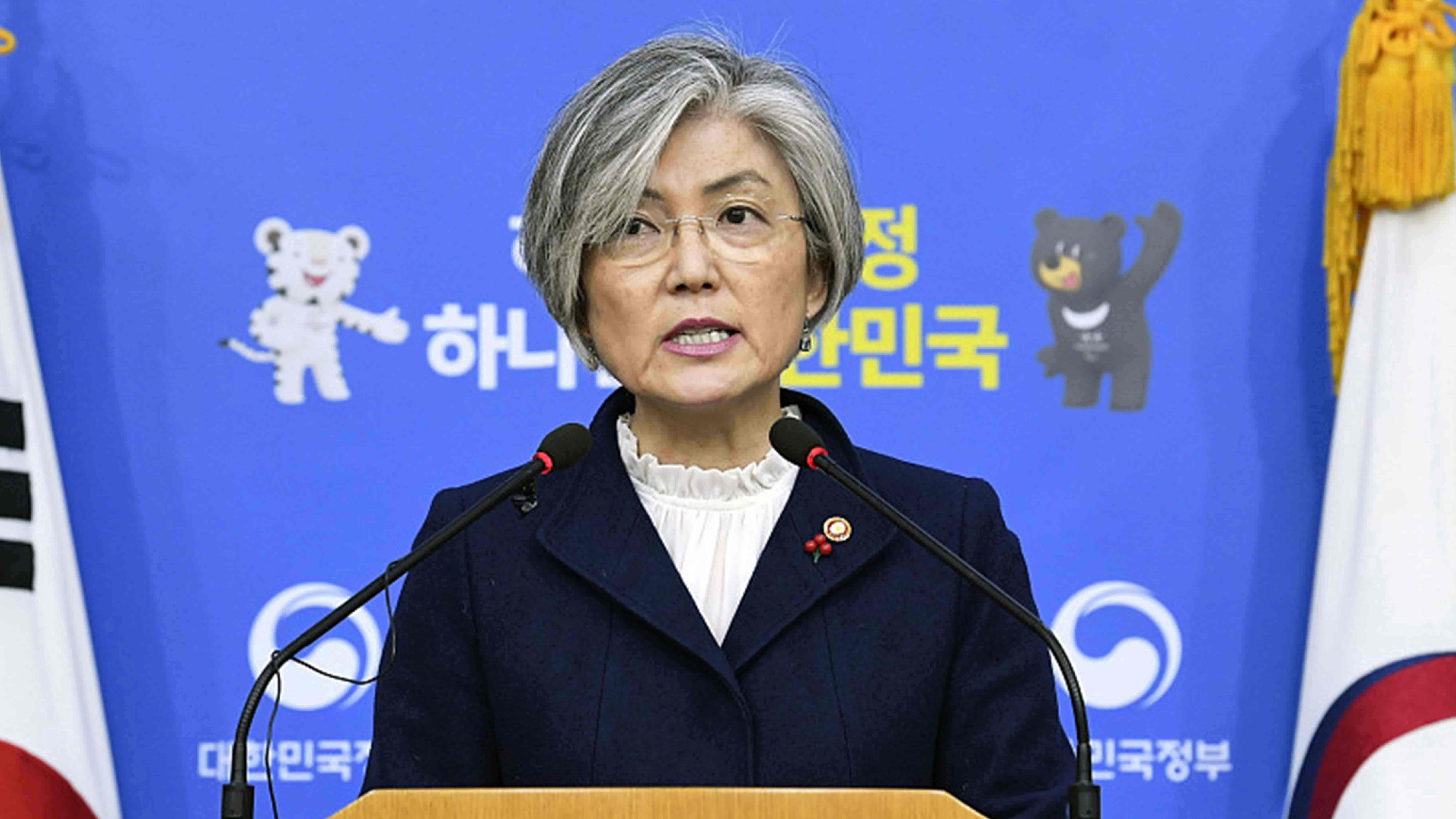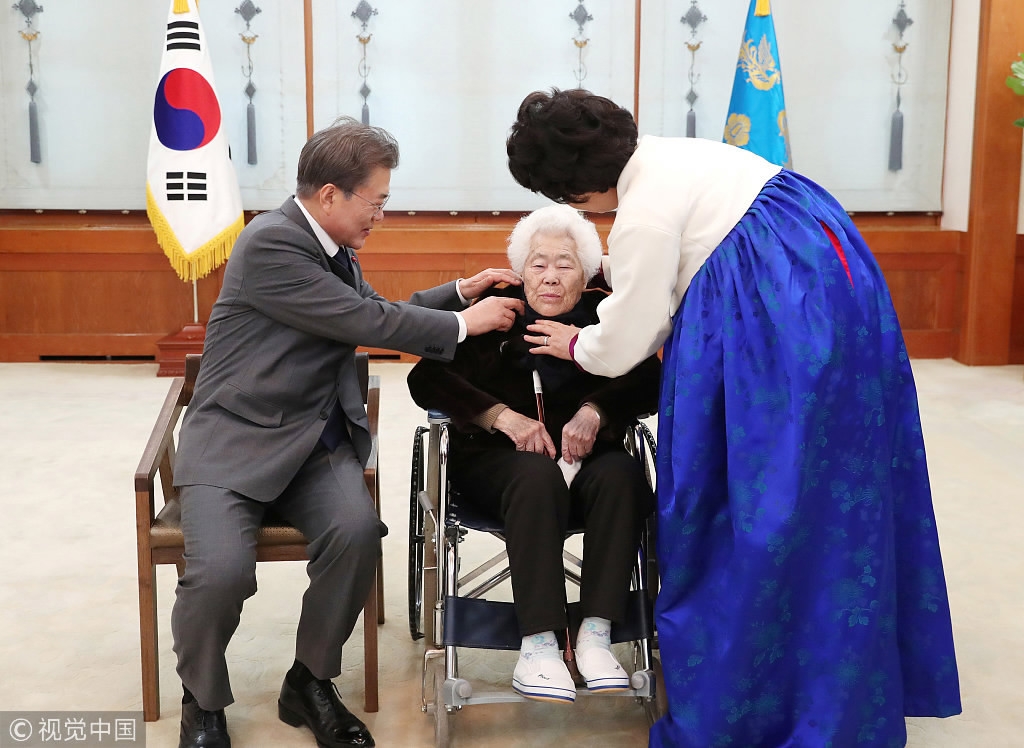
Politics
20:21, 09-Jan-2018
Japan rejects S. Korean call for extra steps over 'comfort women'
CGTN

Japan has rejected new Republic of Korea (ROK) criticism of a landmark deal on "comfort women" that the two countries signed in 2015.
"The steady implementation of this agreement is both countries' duty to the international community," Foreign Minister Taro Kono was quoted as telling a press briefing on Tuesday.
Under the accord, the two countries had agreed that the "comfort women" issue, which had significantly strained relations, would be "finally and irreversibly" resolved.
But the administration of ROK President Moon Jae-in, who took office in May, has said the deal reached under his predecessor does not reflect the will of the majority of South Korean people and will be revisited.
The so-called "comfort women" issue involved members of the Japanese Army during World War II, forcing girls and women mainly from Asian countries to work as sex slaves for Japanese soldiers.

Republic of Korea Foreign Minister Kang Kyung-wha (L) shakes hands with her Japanese counterpart Taro Kono at a meeting inTokyo on December 19, 2017. /VCG Photo
Republic of Korea Foreign Minister Kang Kyung-wha (L) shakes hands with her Japanese counterpart Taro Kono at a meeting inTokyo on December 19, 2017. /VCG Photo
Kono said that Japan cannot accept the ROK's new policy position on the issue.
"We cannot accept at all S. Korea's demand of further action from Japan despite the fact that, with this 2015 agreement, we affirmed the final and irreversible resolution of the comfort women issue," Kono added.
He went on to say that while Tokyo will "swiftly protest" the new policy through the "appropriate channels" he was confident that the ROK "is aware that this agreement is one of the cornerstones of future-oriented bilateral relations."
The foreign minister said that the government in Tokyo would like further clarification as to what Seoul means by "matching Japan's contribution."

Seoul has said that it will not seek to renegotiate the deal, but will plan to match the one billion yen (8.9 million US dollars) paid by the Japanese government under the deal, with South Korea's Foreign Minister Kang Kyung-wha saying that it will decide how to use Japan's payoff.
The victims of the Japanese war-time sexual slavery came from the Korean Peninsula and other parts of Asia, including China.

South Korean President Moon Jae-in and first lady Kim Jung-Suk greet a South Korean woman who was forced to work in Japanese wartime brothels as a "comfort woman", at the Presidential Blue House in Seoul, on January 4. /VCG Photo
South Korean President Moon Jae-in and first lady Kim Jung-Suk greet a South Korean woman who was forced to work in Japanese wartime brothels as a "comfort woman", at the Presidential Blue House in Seoul, on January 4. /VCG Photo
Statues erected to pay honor to these "comfort women" draw the ire of the Japanese government, the right-wing forces of which have been trying ardently to whitewash its wartime atrocities.
Japan's Chief Cabinet Secretary Yoshihide Suga, the government's top spokesman, said Tuesday that Tokyo is "not thinking of moving even a millimeter on the deal."
Source(s): Xinhua News Agency

SITEMAP
Copyright © 2018 CGTN. Beijing ICP prepared NO.16065310-3
Copyright © 2018 CGTN. Beijing ICP prepared NO.16065310-3